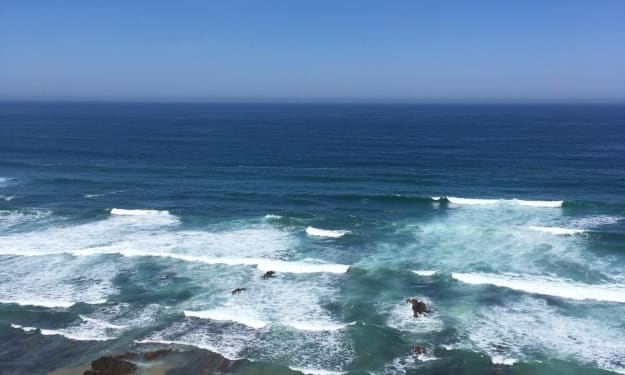The Tragedy of the Great Barrier Reef
The Death of Beauty

The Great Barrier Reef is known worldwide for its beauty and incredible wildlife, however it isn’t doing so well anymore. There have been posts on very popular social media sites claiming the reef is dead but these articles are incorrect; it is dying, but it’s not quite dead yet. The point of this piece of writing is to try and inform others of some of the reef's biggest threats and to inspire others to spread their knowledge of the world.
Firstly, to give an idea of its popularity, the reef and surrounding areas attract over two million visitors a year which generates between AU $5-6 billion. The reef supports more than 1500 species of fish, 400 types of mollusks, and 200 species of birds; this alone should give it the title of a wildlife haven. The Great Barrier Reef is visible from space and is the largest structure on Earth made up of living organisms, it really is quite incredible.
In terms of attractions, The Great Barrier Reef simply isn’t enough anymore; the tourism industry requires more than just nature's beauty, it requires amazement and once in a lifetime opportunities. As its popularity increases, so does its supply and demand for attractions and entertainment. Mangroves have been destroyed in order to create man-made beaches and piers, building over coral reefs in such a way is destroying precious habitats for some of the reefs residents. Visitors to these beaches and piers have no idea they are walking on destroyed mangroves and coral reefs and this is the problem, the less knowledge people have, the less power they have to change the world.
Other popular attractions include boat rides and snorkelling; these seem like quite harmless and educating activities, however all actions have impacts. Tourist attractions need to constantly be improving, getting paying customers closer and closer to the action and it's due to this that boats are being forced to drive out further into the reef, disturbing the coral, fish, sharks, dolphins, and whales. Snorkelers are also forever damaging the reefs by being careless and not regarding their surroundings.
Coral bleaching is becoming a huge problem at The Great Barrier Reef; in 1988 there was a mass global bleaching event in which 50% of the reef suffered bleaching. Coral bleaching is due to a rise in temperature in the ocean and if these high temperatures persist for long periods of time – 8 weeks or longer – it’s after this period that the coral begins to die. In 2016 there was a 29% loss of shallow reef and this continued into winter with higher than average water temperatures.
Crown of Thorns is also a concern in relation to coral loss, it’s responsible for the loss of around 40% of coral. It is a deadly breed of starfish that feed from coral and in recent years there have been outbreaks of these starfish, one of the reasons for this is climate change.
"Last chance" tourism is the idea that tourists will hear news that an attraction / place (such as The Great Barrier Reef) is dying and want to visit it before it is either dead or too dangerous to go and see. The media has huge impacts on "last chance" tourism with fake news articles being thrown around the internet they can be part of the murder of such a beautiful reef. More people need to be educated on this as without even realising it, the public is killing these amazing places just because they want to see it before it dies; the entire thing is a ridiculous contradiction.
Education is the best way to help The Great Barrier Reef, it may be too late to save it but it’s not too late for the rest of the world and its incredible wonders and attractions. Knowledge really is power.





Comments
There are no comments for this story
Be the first to respond and start the conversation.